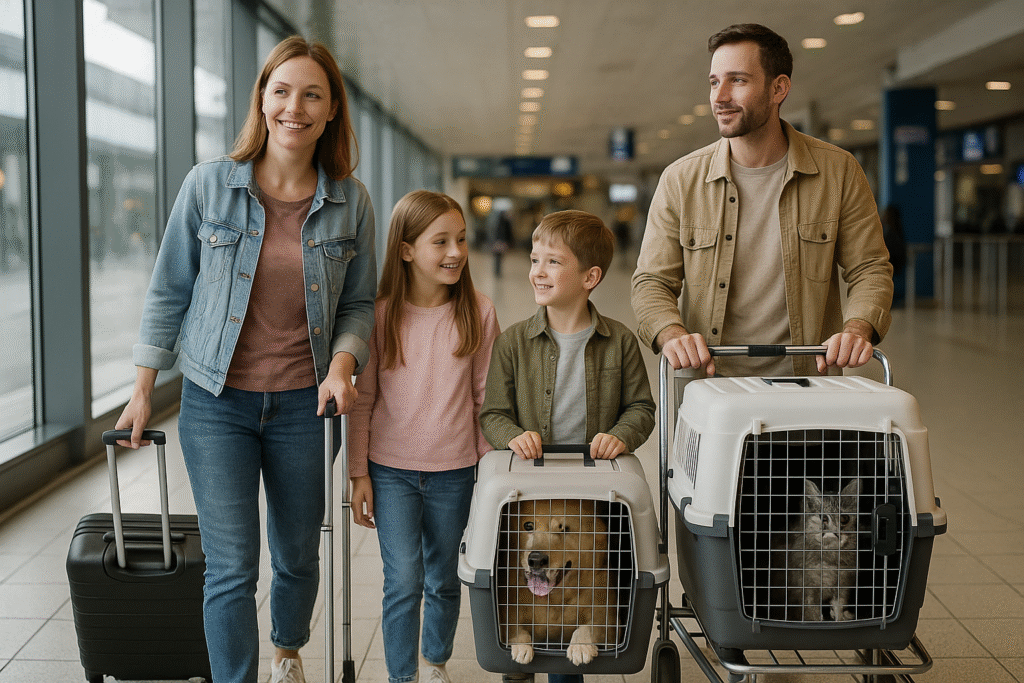
Moving to Portugal With a Pet
Master Checklist & Guide
Moving to Portugal with a pet is not for the faint of heart. It’s paperwork stacked on top of paperwork, vet visits that feel endless, and countdowns measured in microchips and rabies shots. But for anyone who’s ever looked at their pet and thought, “You’re coming with me”, this guide is your lifeline. It breaks down every step – from the first vet appointment to clearing customs in Lisbon – in a way that makes sense and saves you stress. Whether you’re bringing a golden retriever, a rescue cat, or a tiny traveler with attitude, this is the go-to guide for relocating pets to Portugal smoothly, safely and legally.
Phase 1: Early Planning (6+ Months Before Move)
This phase is about understanding the rules and setting a timeline.
Step 1: Understand Portugal’s Pet Entry Requirements
Portugal, as an EU member state, follows the EU Pet Travel Scheme. The rules differ depending on your country of origin.
- From another EU Country: The process is relatively straightforward, requiring a valid EU Pet Passport.
- From a “Listed” Third Country (e.g., USA, Canada, UK, Australia): This is the most common scenario. You must follow the standard EU procedure.
- From an “Unlisted” Third Country: Stricter rules apply, including a Rabies Titer Test (see below). Confirm your country’s status on the European Commission website.
- This guide will focus on the process from a “Listed” country like the USA, Canada, or the UK.
Step 2: Confirm Your Pet is Eligible
- Allowed Animals: The EU scheme covers domestic dogs, cats, and ferrets. The rules below apply to them. Other pets (like birds, rabbits, reptiles) have entirely different and often more complex regulations.
- Number of Pets: You can travel with up to 5 pets. If moving with more, you may fall under different, stricter commercial regulations.
- Breed Restrictions: Portugal does not have a nationwide breed-specific legislation list for pets entering the country. However, some municipalities may have local ordinances regarding “potentially dangerous” breeds, which may require mandatory liability insurance, muzzle use in public, etc. Check the regulations for your specific destination concelho (municipality). Prohibited breeds are generally not allowed to be imported. This includes the Pit Bull Terrier, among others, in some contexts. Always verify with the Portuguese embassy.
Phase 2: The Veterinary Procedures (4–6 Months Before Move)
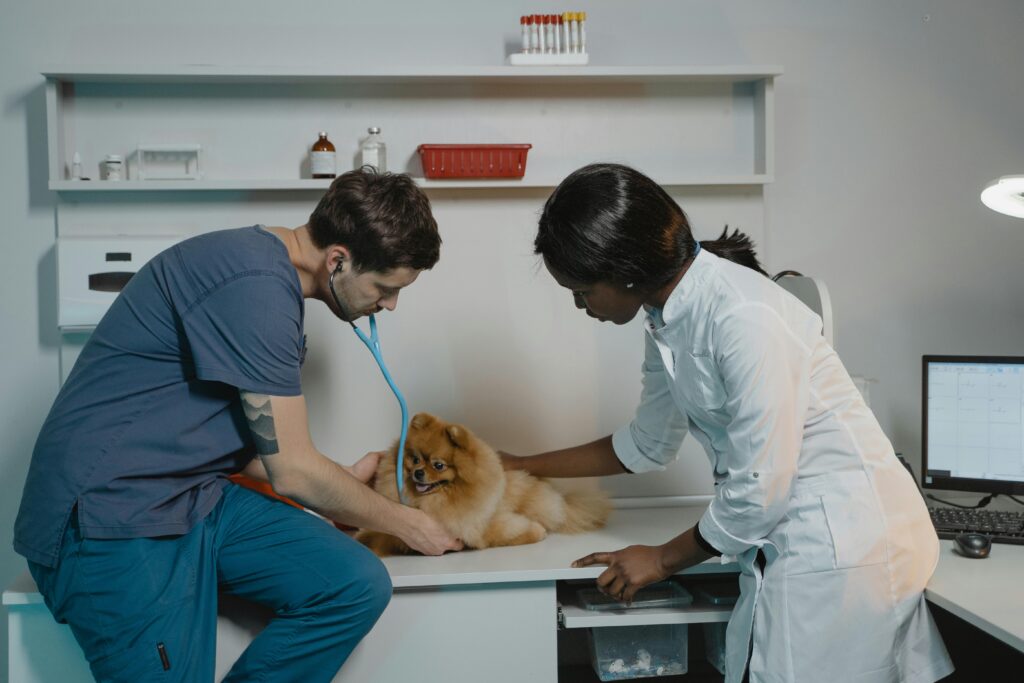
This is the most critical phase. Missing a detail here can result in your pet being quarantined or refused entry.
Step 3: Microchip
- What: Your pet must be identified with an ISO 11784/11785 compliant 15-digit pet microchip. This is non-negotiable.
- When: This must be implanted BEFORE any other procedures, especially the rabies vaccine. If it’s not, the vaccine is considered invalid.
- Cost: ~$50 – $80 USD.
Step 4: Rabies Vaccination
- What: Your pet must be vaccinated against rabies with an inactivated vaccine.
- When: After the microchip. This is the primary vaccine.
- The 21-Day Rule: You cannot enter the EU until at least 21 days have passed after the primary rabies vaccination’s administration date. This is a crucial waiting period.
Step 5: Wait 30 Days, Then Consider the Rabies Titer Test (FAVN/OIE Test)
- What: A blood test to confirm sufficient rabies antibodies.
- Is it Mandatory? For entry from listed countries like the US and UK, it is generally NOT required for a first-time entry. However, it is HIGHLY RECOMMENDED.
- Why get it?
- If your pet’s rabies booster is ever late or lapses, you will need a new titer test for future travel. Having a valid one simplifies your life.
- It provides a buffer in case of paperwork errors.
- It is mandatory if you are coming from an “Unlisted” country.
- If your pet’s rabies booster is ever late or lapses, you will need a new titer test for future travel. Having a valid one simplifies your life.
- Process: Your vet draws a blood sample and sends it to an EU-approved lab. The waiting period for results is typically 3-4 weeks.
- Timeline: The sample must be drawn at least 30 days after the rabies vaccination. The result must show a level of at least 0.5 IU/ml.
- Validity: The test is valid for entry as long as the rabies vaccinations are kept up-to-date.
- Cost: ~$200 – $400 USD.
Step 6: The EU Health Certificate (Within 10 Days of Travel)
- What: This is the official document that certifies your pet is microchipped, vaccinated, and healthy for travel. You cannot use a standard vet health certificate.
- Timing: It must be completed and endorsed by a USDA (or equivalent government) Accredited Veterinarian within 10 days of your entry into Portugal.
- The Process:
- Your regular vet performs a final health check and completes the EU Health Certificate.
- You then send this certificate to your country’s official authority for endorsement:
- USA: USDA APHIS Veterinary Services Endorsement Office. This is typically done via an overnight shipping service.
- UK: DEFRA (Department for Environment, Food & Rural Affairs).
- Canada: Canadian Food Inspection Agency (CFIA).
- USA: USDA APHIS Veterinary Services Endorsement Office. This is typically done via an overnight shipping service.
- Your regular vet performs a final health check and completes the EU Health Certificate.
- Cost: Vet exam fee (~$50-$100) + USDA/Government endorsement fee (~$120 USD) + shipping costs.
- Sources:
- European Commission – Pet Travel from Non-EU Countries: https://food.ec.europa.eu/animals/movement-pets/arrivals-non-eu-countries_en
- USDA APHIS – Pet Travel to Portugal: https://www.aphis.usda.gov/aphis/pet-travel/by-country/eu/eu-pet-travel (An excellent, detailed guide for Americans)
- European Commission – Pet Travel from Non-EU Countries: https://food.ec.europa.eu/animals/movement-pets/arrivals-non-eu-countries_en
Phase 3: Travel Logistics (Booking & Execution)
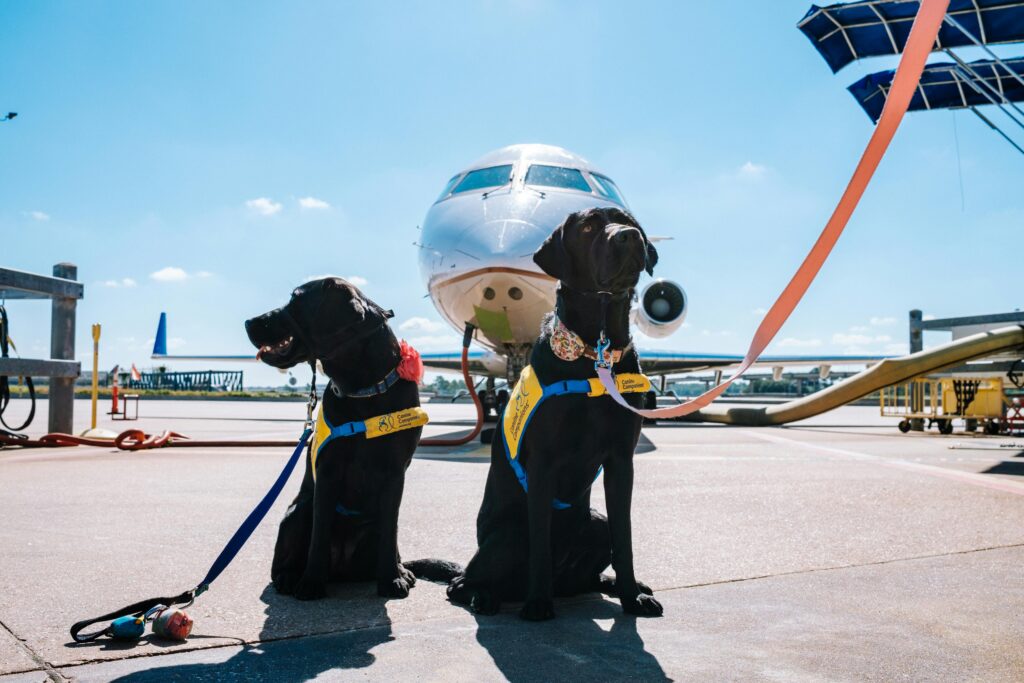
Step 7: Choosing an Airline and Understanding Their Policies
You must book your pet’s travel directly with the airline. Policies vary dramatically.
- In-Cabin: Small dogs and cats (typically under 8-10 kg / 17-22 lbs including carrier) can often travel in the cabin.
- Airlines: TAP Air Portugal, Delta, United, Lufthansa, Air France are generally pet-friendly. TAP Air Portugal is the national carrier and has clear policies, often making them a good choice for a direct flight to Lisbon/Porto.
- Carrier Requirements: Soft-sided carriers that fit under the seat. Dimensions are strictly enforced.
- As Checked Baggage (in the hold): For larger pets. The pet travels in an IATA-compliant kennel in a temperature-controlled compartment.
- Breed Restrictions: Many airlines embargo brachycephalic (short-nosed) breeds like Bulldogs, Pugs, and Persians due to respiratory risks.
- Kennel Requirements: Must be large enough for the pet to stand, turn, and lie down naturally. Must be labeled “Live Animals,” have food and water dishes, and be secure.
- As Cargo: For very large pets or when moving multiple animals. This is the most expensive option and involves working with the airline’s cargo division. It’s often required for animals over a certain weight.
- Costs:
- In-Cabin: $100 – $250 each way.
- Checked Baggage: $200 – $600 each way.
- Cargo: $500 – $2,000+.
- In-Cabin: $100 – $250 each way.
Step 8: Booking the Flight
- Book Early: Airlines have limits on the number of pets per flight.
- Call to Confirm: After booking online, call the airline to add your pet to the reservation and pay the fee.
- Direct Flights are Best: They reduce the risk of mishandling and temperature extremes during layovers. If you have a layover in another EU country, your pet’s documents will be checked there, not in Portugal.
Step 9: Final Vet Check & Paperwork
A few days before travel, do a final check with your vet to ensure your pet is fit to fly. Get a copy of all records and the endorsed EU Health Certificate.
Phase 4: Arrival in Portugal & Settling In
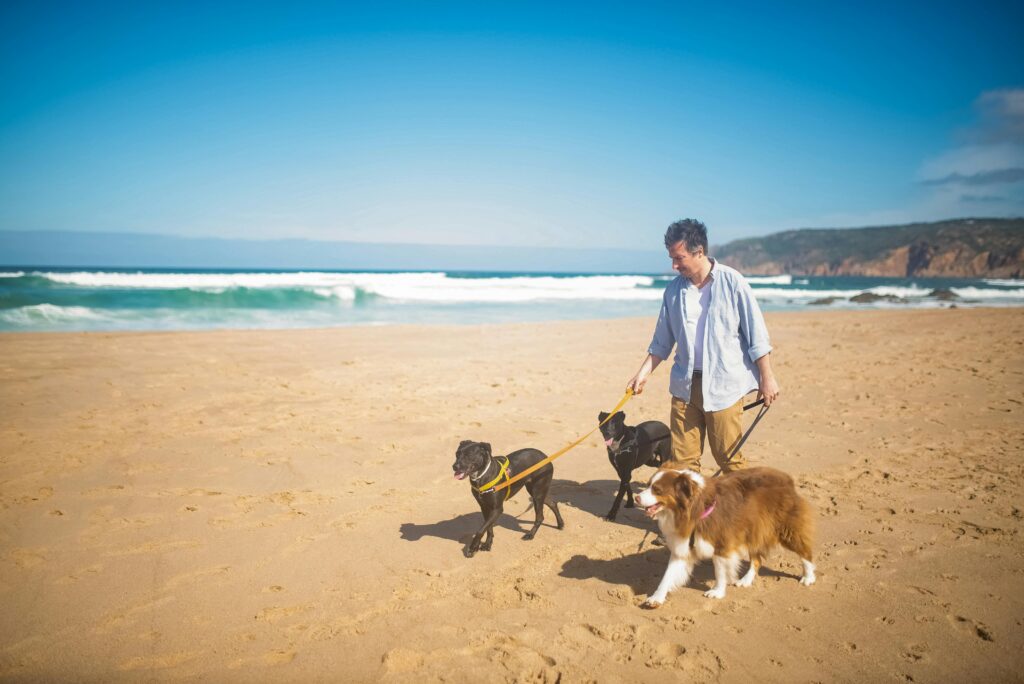
Step 10: Arrival and Document Check
Upon arrival in Portugal, you must enter through a designated Travelers’ Point of Entry (e.g., Lisbon Airport, Porto Airport). Present your pet’s documentation to the Portuguese Border Control/ Veterinary officials. They will check:
- Microchip
- EU Health Certificate
- Proof of Rabies Vaccination
Have all documents easily accessible. Failure to present correct documents can lead to refusal of entry, quarantine at your expense, or re-export.
Step 11: Getting a Portuguese EU Pet Passport
Once you are resident in Portugal, this is your next step.
- Process: Find a local Portuguese veterinarian (médico veterinário). Provide them with your pet’s documentation and proof of your residency.
- Benefit: The EU Pet Passport simplifies all future travel within the EU, as it replaces the need for the health certificate for each trip.
- Cost: ~€50 – €150.
Step 12: Finding a Vet and Ongoing Care
- Finding a Vet: Ask for recommendations in local expat Facebook groups (e.g., “Expats in Lisbon,” “Americans in Portugal”) or from neighbors. Most clinics (clínicas veterinárias) have websites.
- Mandatory Treatments in Portugal:
- Rabies Booster: Must be kept up-to-date. The Portuguese vet will record this in the new EU Pet Passport.
- Canine Distemper, Hepatitis, Parvovirus, Leptospirosis: Not mandatory for entry, but highly recommended and often required for kennels, dog parks, etc.
- Annual Health Checks: Standard practice.
- Rabies Booster: Must be kept up-to-date. The Portuguese vet will record this in the new EU Pet Passport.
- Other Considerations:
- Leishmaniasis: A serious parasitic disease transmitted by sandflies, prevalent in the Mediterranean. Discuss preventative medication (collars, spot-ons) with your Portuguese vet.
- Heartworm: Also present in Portugal. Discuss a prevention plan with your vet.
- Leishmaniasis: A serious parasitic disease transmitted by sandflies, prevalent in the Mediterranean. Discuss preventative medication (collars, spot-ons) with your Portuguese vet.
Summary Checklist & Timeline
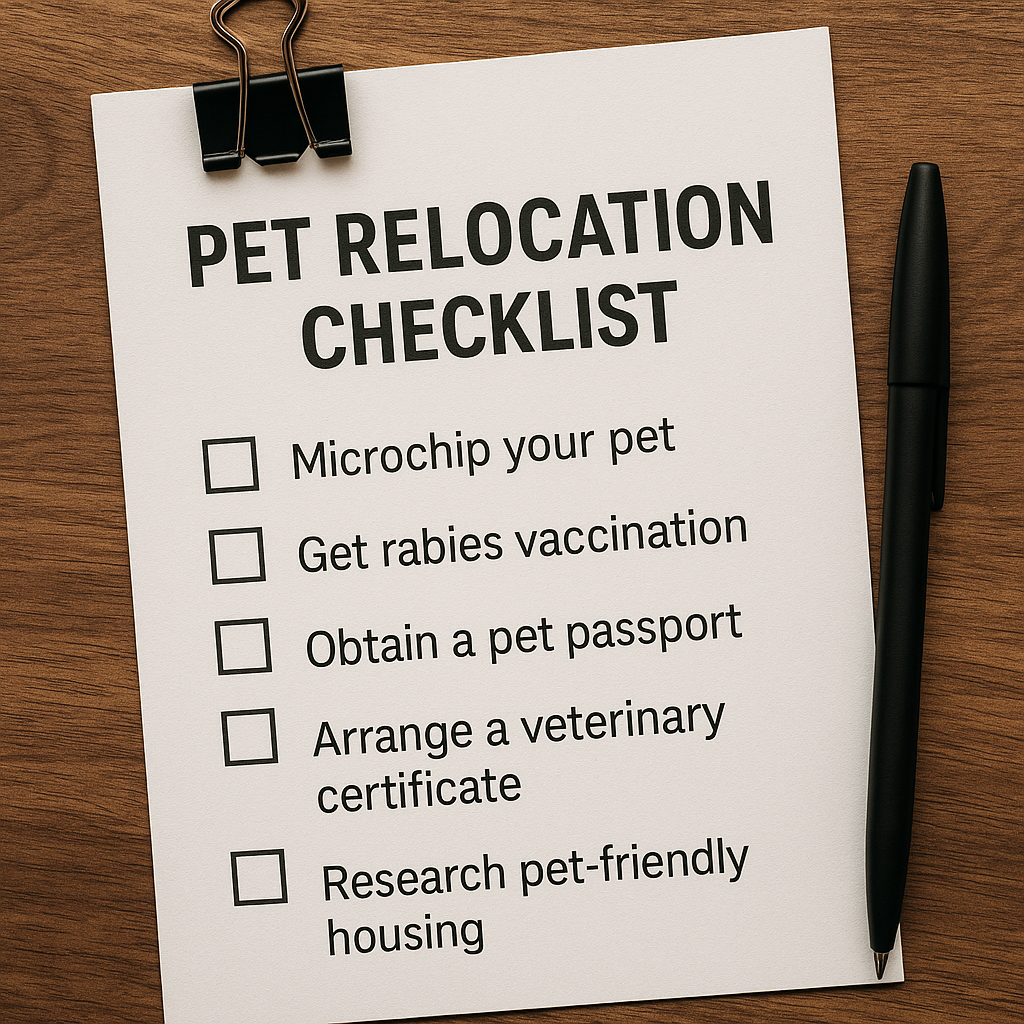
- 6+ Months Before: Research, confirm microchip, ensure rabies vaccine is up-to-date.
- 4–6 Months Before: If getting a titer test, do it now.
- 1–2 Months Before: Book flights and confirm pet travel.
- Within 10 Days of Travel: Visit USDA Accredited Vet for final health check and EU Health Certificate. Get it endorsed by the government.
- Day of Travel: Exercise pet before flight, attach a “Live Animal” sticker to the kennel, ensure water is available.
- Upon Arrival: Present documents at the Portuguese border.
- After Settling: Register with a local vet and get an EU Pet Passport.
Final Source for the Most Accurate Information
Portuguese Directorate-General for Food and Veterinary Affairs (DGAV): https://www.dgv.min-agricultura.pt/portal/page/portal/DGV (Use Google Translate for navigation). They are the ultimate authority on entry requirements.
Picking Flights: Pet-Friendly Transatlantic Options (Rules & Sizes)
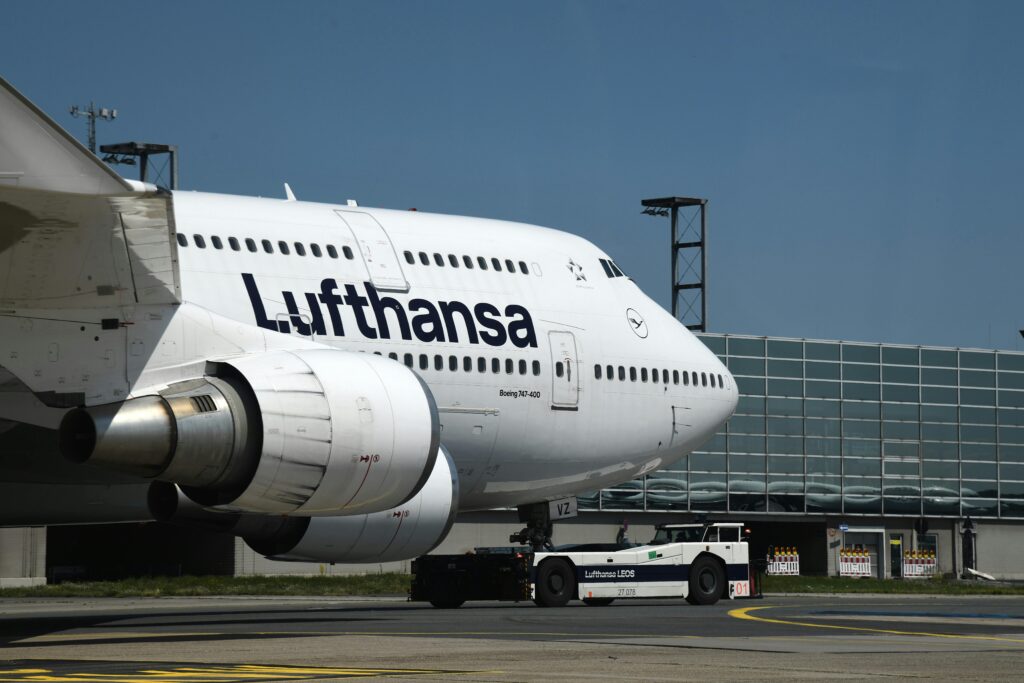
TAP Air Portugal (often the easiest one-stop to LIS/Porto)
- Cabin: dogs/cats up to 8 kg (17 lb) including carrier; max 45×30×23 cm carrier. TAP may reroute pets to hold if conditions aren’t met. No brachycephalic breeds in hold. Fees vary by route. TAP Air Portugal+1
- Hold: accepted above cabin limits; TAP Cargo lists exceptions and declarations for brachycephalic/cross-breeds. tapcargo.com
Lufthansa
- Cabin: up to 8 kg including carrier (register ≥72 hours before departure). No brachycephalic breeds in hold since 2020. Lufthansa+2Lufthansa+2
Air France
- Cabin: pet+carrier ≤8 kg, larger to 75 kg must go in hold; advance booking required. Air France USA
KLM
- Cabin: dogs/cats ≤8 kg incl. carrier; carrier max 46×28×24 cm. KLM Airlines
United (US carrier)
- In-cabin pets allowed on most flights (fees and limits apply), but United no longer offers general pet cargo except narrow exceptions (e.g., certain military/State Dept.). Plan in-cabin or via pet-cargo specialists if your pet can’t fit under-seat. United Airlines+1
Delta (US carrier)
In-cabin pet limits per flight; many international sectors do not accept live animals in cabin—verify per route. Delta+1
Why many choose EU carriers (TAP/LH/AF/KLM): clear 8 kg cabin rules, predictable pet booking, and direct Europe hubs. U.S. carriers’ international in-cabin acceptance can be limited; cargo options for pets (esp. brachycephalics) are restricted across the industry for safety. Delta+1
Costs (Typical, 2025)
- USDA endorsement (health certificate): fees scale with #pets/tests; current schedule published by APHIS (e.g., $160 for certificates with 1–2 lab tests; higher for more tests; other schedules list $101–$275 depending on complexity—always check the official fee table). APHIS+1
- Airline pet fees (examples): TAP (cabins/holds priced by route; cabin often ~€40–€80 per segment per recent reviews), Air France (€200 on most long-hauls for cabin), KLM/LH similar EU-style pricing. United (~$125–$150) in-cabin per direction reported. Always confirm at booking. Healthy Pet+3 Crazy Daisy Travels+3 BringFido+3
- Vet visits/certificates: varies; budget for the EU certificate exam + any re-vaccination; some clinics post typical endorsement fee lines to expect. polkstreetah.com
- Crates/carriers: IATA-compliant for hold; under-seat soft carrier for cabin per airline dimensions. (Brachycephalic breeds have extra crate sizing rules and many hold bans.) The ARK at JFK+1
Step-by-Step on the Paperwork (Dogs/Cats)
- Chip (ISO 11784/11785) →
- Rabies after chip; wait ≥21 days for primary →
- Book flights and pet spot →
- Vet issues EU “non-commercial” Animal Health Certificate (you sign the owner declaration) →
- USDA endorses the certificate (within 10 days of EU arrival) →
- Email DGAV Traveler Entry Point ≥48 hours before landing using the official form (include flight, date, pet details) →
- Arrive via a designated Point of Entry; vet checks ID/docs →
- After arrival, register in SIAC via a Portuguese vet; confirm local rules for PDB breeds (muzzle/insurance/permits). Madeira Corporate Services+4 APHIS+4 dgav.pt+4
Special Cases & Gotchas
- >5 pets / owner not traveling within ±5 days → this becomes commercial movement: different certificate & stricter timing (USDA endorsement within 48 hours of departure). APHIS
- Tapeworm (Echinococcus) treatment is not required for Portugal (it is for Finland, Ireland, Malta, Norway after EU entry). APHIS
- Brachycephalic breeds: many airlines ban in hold; consider in-cabin on EU carriers or specialized cargo services under specific temperature limits. TAP Air Portugal+1
- Young pets (<16 weeks) usually can’t enter from the U.S. because you can’t satisfy the microchip → rabies → 21-day wait in time. APHIS
- Arrival vet check is real: the border vet can refuse entry if the chip doesn’t read or dates don’t align. Double-check chip readability and dates on every doc. dgav.pt
Birds (Summary)
Birds have different certificates and tight timing: the EU requires an EU bird health certificate, exam/certificate within 48 hours before departure, and USDA endorsement. Options for pre-export prep are specified by the EU. Coordinate early with an accredited vet. APHIS
Arrival Airports & Contacts (Portugal)
Portugal runs pet checks at designated Traveler Entry Points (e.g., Lisbon, Porto, Faro). DGAV publishes the 48-hour notice form and contacts; airports also reiterate the rule. Use the official form and email the correct border post for your flight. dgav.pt+1
After-Arrival Life Admin
- SIAC registration with a local vet (legal, all dogs/cats/ferrets). Keep your U.S. microchip docs; Portuguese vets can register foreign chips. siac.pt
- PDB breeds: expect muzzle/leash, liability insurance, possible sterilization rules (no public transport for some). Get the municipal permit if required. Dogs on the Road+1
Quick Airline Chooser (to LIS/Porto)
- Small pet (≤8 kg incl. carrier): TAP, Lufthansa, Air France, KLM (book early; confirm under-seat dimensions/route). KLM Airlines+3 TAP Air Portugal+3 Lufthansa+3
- Larger pet / in hold: TAP/LH/AF/KLM have hold options—but many ban brachycephalics in hold. United doesn’t offer general pet cargo now; plan cabin or use specialized cargo via partners. Lufthansa+1
Practical Packing List
- Endorsed EU Animal Health Certificate (plus all prior rabies certificates showing no lapse & chip #) APHIS
- DGAV 48-hour notice email + arrival form copy (printed and on phone) dgav.pt
- Chip scanner (optional if worried about non-ISO chip readability) APHIS
- IATA-approved crate (hold) / airline-approved soft carrier (cabin) with published size limits TAP Air Portugal+1
- Muzzle/leash if your dog is a listed PDB breed (you’ll need it in public anyway) Dogs on the Road
What This Costs (Ballpark, One Pet)
(Note: this repeats some items from “Costs (Typical, 2025)”—kept intentionally as you requested no unnecessary deletions.)
- USDA endorsement: per APHIS fee table (depends on tests/complexity; check the official schedule). APHIS
- Airline: €200 Air France cabin long-haul; TAP/LH/KLM similar ranges; U.S. airlines often $125–$150 each way in cabin (route-dependent). BringFido+2 PetRelocation+2
- Vet: exam + certificate issuance (varies by clinic/market) and possible extra shots/tests (not usually required for Portugal if rabies valid). polkstreetah.com
Sources (Primary & Official Where Possible)
- USDA APHIS – U.S. → Portugal (dogs/cats/ferrets): microchip → rabies → health certificate, 10-day endorsement window, non-commercial vs commercial, and post-entry 4-month EU travel validity. Portugal also requires 48-hour advance notice. APHIS
- DGAV (Portugal) – “Travelling to Portugal with pets”: Points of Entry, vet checks on arrival, non-compliance consequences. Arrival notice form (≥48h). dgav.pt+1
- EU law & guidance – Regulation (EU) 576/2013 and Commission pages: ≤5 pets for non-commercial moves; core conditions (chip, rabies, certificate). Food Safety+1
- Young pets – APHIS: most EU countries don’t allow <16 weeks from the U.S. APHIS
- SIAC (Portugal microchip registry) – registration by Portuguese vets; mandatory for dogs/cats/ferrets. siac.pt
Potentially Dangerous Breeds (Portugal) – listed breeds and public restrictions (muzzle/leash/permits/insurance). Madeira Corporate Services+1
Airlines (References)
- TAP (cabin ≤8 kg, carrier size; brachycephalic hold ban). TAP Air Portugal+1
- Lufthansa (cabin ≤8 kg, register ≥72h; no brachycephalics in hold). Lufthansa+2 Lufthansa+2
- Air France (cabin ≤8 kg; >8 kg to 75 kg = hold). Air France USA
- KLM (cabin ≤8 kg, 46×28×24 cm carrier). KLM Airlines
- United (in-cabin allowed on most flights; no general pet cargo now). United Airlines
- Delta (limited in-cabin on international; confirm per route). Delta+1